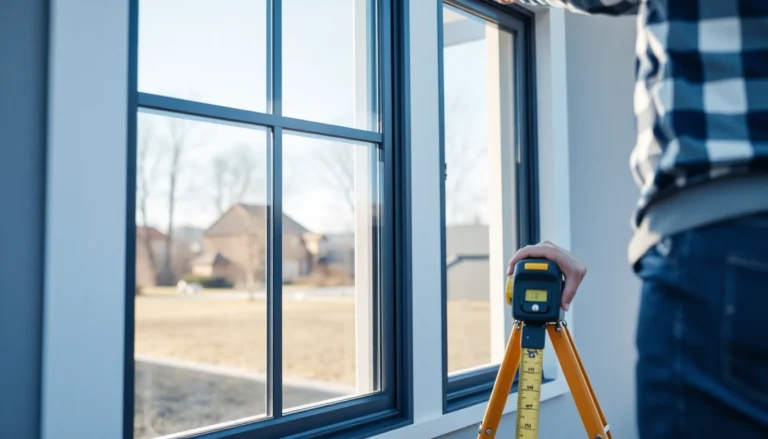Understanding the Role of a Contractor in Construction Projects
In the world of construction and renovation, the term Contractor is fundamental. Whether you’re planning a home remodel, commercial building, or infrastructural project, understanding what a contractor does, the different types, and how to effectively work with one is crucial for project success. A contractor is essentially a person or company that performs work under a contract, often coordinating multiple aspects of a project from planning to execution. Their expertise ensures that projects are completed on time, within budget, and adhering to quality standards. This comprehensive guide delves into the various facets of contractors, empowering you with knowledge for your next construction undertaking.
What Is a Contractor and How Do They Operate?
At its core, a contractor is an individual or a corporate entity that agrees to carry out specific work in accordance with a contractual agreement. According to authoritative sources like Wikipedia, a contractor is “a person or company that performs work on a contract basis.” They are responsible for delivering a particular result, whether it’s constructing a building, installing electrical systems, or performing specialized tasks.
Contractors operate by negotiating contracts that define scope, cost, timeline, and quality expectations. They often oversee and coordinate various subcontractors and specialists involved in the project, serving as the primary point of contact for clients. Success for a contractor hinges on effective project management, resource allocation, adherence to regulations, and maintaining high standards of safety and quality.
Understanding the operational dynamics of contractors is essential whether you’re hiring one or considering a career in construction. They typically follow a structured process, including bidding for projects, procurement of materials, scheduling, and compliance with local building codes. For clients, engaging a qualified contractor translates to peace of mind that their project aligns with legal and safety standards while achieving the desired aesthetic and functional outcomes.
Different Types of Contractors: General, Subcontractors, and Specialists
General Contractors
Often the primary entity responsible for a construction project, general contractors (GCs) oversee the entire process from start to finish. They coordinate all facets of the project, including hiring subcontractors, managing schedules, procuring materials, and ensuring adherence to building codes. For example, a general contractor might contract with a property owner to build a new residential complex and then subcontract concrete work, electrical, and plumbing to specialized subcontractors.
Subcontractors
Subcontractors are specialized professionals or companies hired by general contractors to perform particular tasks. They bring expertise in fields such as electrical installation, roofing, HVAC, or flooring. Their role complements the general contractor’s oversight, ensuring the technical quality of specific aspects of the project. Subcontractors often have their own licensing and certifications, and their careful selection is critical for preserving overall project quality.
Specialists and Niche Contractors
In addition to general and subcontractors, there are specialist contractors focusing on niche areas like environmental remediation, insulation, landscaping, and decorative finishes. Their specialized skills are indispensable for projects requiring advanced techniques or materials. For example, a contractor specializing in green building practices can implement sustainable systems that meet LEED standards, adding significant value to the project.
Understanding these distinctions helps clients assemble the right team for their project, ensuring clarity in responsibilities and streamlining communication. It also allows contractors to build relationships with trusted subcontractors and specialists, fostering a smooth workflow from project inception to completion.
Key Qualities to Look for in a Reliable Contractor
Choosing the right contractor is pivotal to the success of your project. Reliable contractors display a combination of technical expertise, professionalism, and integrity. Here are critical qualities to assess:
- Experience and Track Record: A proven history of successful projects in similar scope and scale demonstrates competence and reliability.
- Proper Licensing and Certifications: Ensures they meet legal requirements and possess the necessary skills. Verify their credentials with local licensing boards.
- Transparent Pricing and Contract Terms: Clear estimates, detailed contracts, and open communication sign a trustworthy contractor.
- Strong References and Reviews: Feedback from previous clients offers insights into their work quality, punctuality, and professionalism.
- Effective Communication Skills: Timely updates and willingness to address concerns foster a collaborative working relationship.
- Safety Record and Compliance: Adherence to safety standards reduces risks and liability concerns.
By prioritizing these qualities, clients can mitigate common risks associated with project delays, cost overruns, or substandard work. A reputable contractor combines competence with integrity, leading to smoother project execution and higher satisfaction.
Steps to Hiring the Right Contractor for Your Project
1. Defining Your Project Scope and Budget
Clarity on what you want to accomplish and how much you’re willing to spend lays the foundation for selecting a suitable contractor. Develop detailed plans outlining materials, design preferences, and expected timelines. Establishing a realistic budget helps prevent scope creep and ensures financial feasibility.
2. Assessing Contractor Credentials and Experience
Use tools such as licensing verification websites, industry associations, and peer recommendations to verify a contractor’s credentials. Review their portfolio and inquire about similar projects they’ve completed. Conduct interviews to gauge their understanding of your needs and compatibility with your project goals.
3. Requesting Bids and Comparing Proposals
Invite multiple contractors to submit detailed bids. Analyze each proposal for clarity, scope coverage, payoff, and potential hidden costs. Avoid selecting solely based on the lowest bid; evaluate the value — including quality, timeline, and contractor reputation.
4. Negotiating Contracts and Setting Expectations
Negotiate clear, comprehensive contracts that specify timelines, payment schedules, project milestones, warranties, and dispute resolution procedures. Establish communication protocols and approval processes to facilitate smooth collaboration. Remember, a well-drafted contract is your safeguard against misunderstandings.
Legal and Licensing Aspects of Contractors
Licensing Requirements and Certifications
Most states and municipalities require contractors to hold valid licenses that demonstrate their competency and compliance with local regulations. Licensing often involves passing examinations, background checks, and proof of insurance. Ensuring your contractor is licensed safeguards against unqualified professionals and legal penalties.
Understanding Contracts, Warranties, and Insurance
Contracts should clearly outline the scope of work, payment terms, and project timelines. Warranties cover workmanship and materials and vary per project type. Additionally, verify that your contractor has adequate liability and workers’ compensation insurance to protect against accidents and damages, reducing your legal exposure.
Ensuring Compliance with Local Building Codes
Contractors must adhere to the building codes and regulations specific to your jurisdiction. Request evidence of permits and inspections to ensure all work is compliant. Working with licensed professionals minimizes risks of project delays, fines, or legal liabilities.
Best Practices for Managing Contractor Relationships
Effective Communication and Regular Updates
Maintaining open and consistent communication fosters trust and prevents misunderstandings. Schedule regular meetings or check-ins, and document discussions and decisions. Utilizing project management tools can streamline updates and tracking progress.
Monitoring Progress and Quality Control
Implement periodic inspections to verify work quality aligns with specifications. Address issues promptly, and keep a record of any changes or deviations. Building in milestones and inspections ensures adherence to standards and helps manage costs and timelines.
Handling Disputes and Changes During Construction
Disagreements are inevitable; approach dispute resolution with professionalism. Refer to the contract’s dispute clause, negotiate in good faith, and consider mediation if necessary. Flexibility and clear documentation of change orders prevent cost overruns and delays.
Measuring Success and Project Completion
Evaluating Work Quality and Satisfaction
Post-completion, assess whether the work meets project specifications, quality standards, and your expectations. Soliciting feedback from stakeholders and conducting inspections help determine success.
Final Inspections and Compliance Checks
Arrange for final inspections mandated by local authorities. Obtain written confirmations of compliance to legal and safety standards, providing peace of mind and coverage for warranties.
Post-Project Maintenance and Contractor Follow-up
Establish a plan for ongoing maintenance if applicable. Keep communication channels open for warranty-related concerns or future projects, fostering long-term relationships with trusted contractors.








